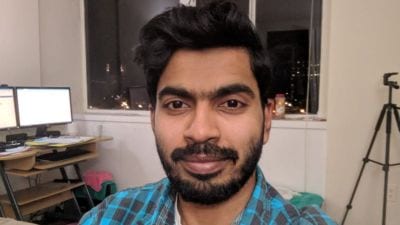In the Land of Stiff Upper Lips
The hoardings read Chaat House, Punjab Textiles, and Channa Shalimar Jewellers. The air is thick with smell of hot jalebis, kebabs, and aloo...

The hoardings read Chaat House, Punjab Textiles, and Channa Shalimar Jewellers. The air is thick with smell of hot jalebis, kebabs, and aloo tikki. It could be Ludhiana or Lahore, only this is London. Welcome to Southall, on the periphery of London.
Termed as a ‘Mini Punjab’ or ‘Little India’, the first thing that will strike you is its perpetual traffic jams. The local joke goes that most residents either can’t read the traffic signals in English or they are fresh arrivals from Punjab driving on their cousins’ licence.
‘‘Technically only 40,000 people live in the five wards of Southall, of these almost 70 per cent are of South Asian origin,’’ says the local MP, Piara Khabra. Southall is Punjab in its true spirit — raw, thunderous, vibrant, colourful, and aggressive, never to miss any opportunity.
The story of Southall’s Indianisation begins around the early sixties. There were two major imperatives that drew Punjabi migrants to Southall — Heathrow Airport and the adjoining industrial estate. ‘‘People didn’t want to venture deep into an unknown country. They landed at Heathrow and found a community offering accommodation and factories offering jobs nearby,’’ says Punjabi writer K C Mohan.
The work allotted to the Indian migrants was back-breaking and low paying. Amolak Singh, who still can’t speak English after 35 years in Southall, is a representative of those initial years. He started working night shift in a bakery, spent 26 years working like that. Singh’s eyes gleam with pride when he talks about his Solicitor son, and the other one, enrolled with the nearby Brunnel University.
Savings of people like Singh, meagre though they might look in modern times, brought prosperity to Punjab. With this huge income they married off their daughters and sisters back home, build big houses and bought farming lands. It wasn’t an easy journey though.
‘‘The large concentration in Southall gave a sense of security but it also aroused local opposition,’’ says Om Dogra, the former welfare officer of the oldest community organisation, the Indian Workers Association. ‘‘The Englishmen used to hate us, but they loved our work,’’ says BM Gupta.
Beneath the ground there always was a current of simmering discontent. In the late sixties, right-wing Tory MP Enoch Powell gave powerful expression to it. Says K C Mohan, ‘‘Powell did real damage to race relation by his Rivers of Blood speech. It brought the racist National Front right to our doors.’’
But once the community established its dominance it started enjoying life’s little pleasures. ‘‘The weekend gatherings, birthdays, and weddings became louder and even ostentatious,’’ says Dogra. But still it was raw and rustic.
Prosperity demanded sophistication. ‘‘That’s what I tried to do,’’ says the pioneer of pop-Bhangra, Channi Singh. ‘‘Southall is the birth place of modern Bhangra. People used to be shy and ashamed of playing Punjabi music. I wanted Punjabi music and Bhangra to be played in cars and concerts.’’
The 24 hours Sunrise Radio ushered in a big social change. Says its founder Avtar Litt: ‘‘We get so much of positive feedback, that sometimes it gets embarrassingly supportive.’’ Thousands turn up to watch the local radio star Ravi Sharma. In an open air radio auction in support of a local charity one of his shirt was grabbed for Pound sterling 2,000 by one of his lady admirers.
Photos


- 01
- 02
- 03
- 04
- 05





























